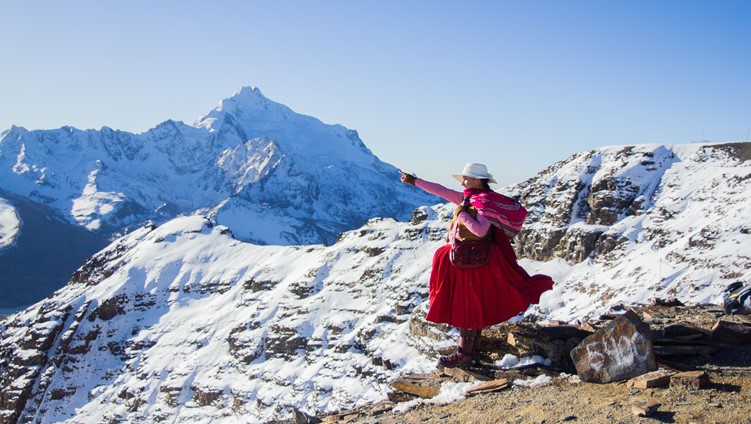Adrian Kowal is involved with a range of organisations pursuing social and environmental change through reflective, often radical nature experiences. Our Editor Sam spoke with him about these efforts.
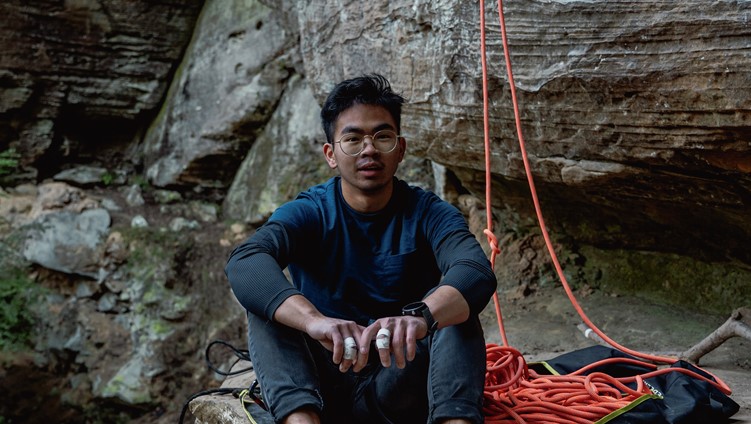
Adrian Kowal is involved with a range of organisations pursuing social and environmental change through reflective, often radical nature experiences. Our Editor Sam spoke with him about these efforts.
Being outdoors is good for our physical and mental health. This truism was being regularly and rightly recited in adventure films and Sunday supplement pieces on walking and wild swimming long before the privations of lockdown. Being cooped up has painfully proven the point.
Despite this, few discussions of this fundamental truth pursue its implications far. What might a more radical interpretation of the value of nature look like, for both adults and children, beyond the encouragement to get outside regularly?
One place exploring this question is the world of nature-based education - particularly smaller programmes with more experimental leeway than well-known (in a UK context) initiatives like the Duke of Edinburgh’s Award or Scouts. These smaller programmes form a branch of the great tree of environmental projects developing different ways of living with nature.
Since co-founding the Evolve Wellness Centre in South Kensington around a decade ago, Adrian Kowal has helped germinate a range of experimental nature-based programmes. He has co-founded Way of Nature, which uses extraordinary nature experiences to address social and ecological challenges; The Visionaries, which uses rites of passage programmes to help students transition into adulthood; and an alternative primary school in Tuscany, where he now lives in a cabin on a patch of farmland. I chatted with him about the state of play and promise of these projects and the ecosystem they belong to.
Photos courtesy of Adrian Kowal
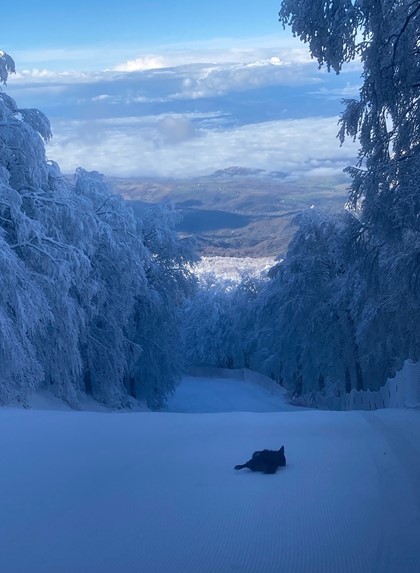
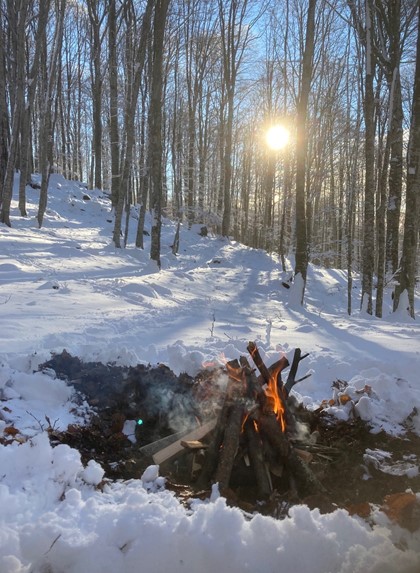
“One of the things I really love doing in life is curating magical experiences, both for myself and co-creating them with other people,” Adrian explains. “I think there is a beautiful skill, actually an art form, around finding adventures on all sorts of little trips and journeys.”
These experiences often involve nature, but not necessarily. During our conversation Adrian references ski touring, celebrating the winter solstice, inoculating lion’s mane mushrooms and planting peach, mulberry and pomegranate trees that very morning. But he also reminisces about writing questions to pull out of a bowl and answer with friends, and his plan to go a year without using the internet: one of the “biggest adventures I think I’ll ever go through.”
In essence, Adrian’s work revolves around creating meaningful experiences to help people grow and develop strong relationships. This meaning derives from at least three vital ingredients: a sense of adventure and awe, ceremony and ritualisation, and the natural world. It is telling that Adrian explains what he does with reference to these ingredients, rather than mission statements or elevator pitches.
Adventurous, awe-inducing experiences help us feel alive and receptive to emotions, sensations and insights, and ritualising these adventures can help us process them with presence and accountability. Nature provides a classroom suited to both: a slow space conducive to adventure far from the distractions of digital life.
These ingredients aren’t inherently radical. Many outdoor-education programmes would likely claim to use them. But adventure, awe and ritualisation can all be interpreted in ways that go beyond most programmes. Given different interpretations can produce different relationships with others and the natural world, experimentation is important.
Photo courtesy of Adrian Kowal
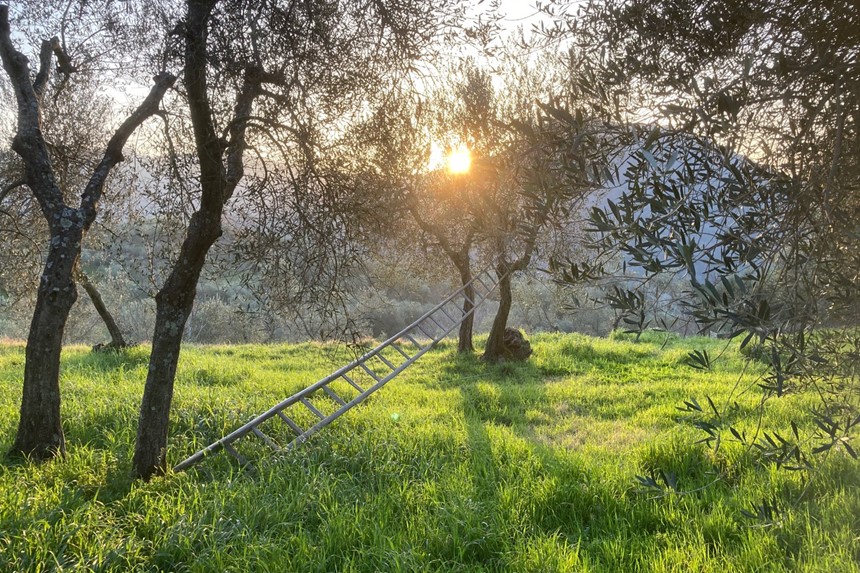
A good example of this kind of ceremonial nature experience is the Nature Quest (or Nature Solos), which forms the heart of Way of Nature programmes. Nature Quests take inspiration from, although don’t purport to be, Vision Quests. A Vision Quest is a rite of passage practiced in some Native American communities, traditionally by young males entering adulthood. It involves spending days and nights, typically four, fasting alone at a sacred wild site. During this time the young person reflects and seeks guidance on their life purpose and community role, before returning to the community to process and enact insights. Nature Quests, which are becoming more popular in mainstream Western culture, take different forms. They might last 24 hours or forty days, and the participant might commit to various degrees of asceticism. But the essential idea remains the same.
Spending days and nights alone and without sustenance or stimulation except one’s surroundings is a particularly intense outdoor experience. But of equal importance to this sense of adventure is the ceremonial role of community in helping the participant process what initially seems a purely individual experience. In contemporary Nature Quests guides and fellow participants play this role, which Elders would assume for traditional Vision Quests. Adrian recalls how much he has learned about himself and others during ‘the giveaway’: “this part after you come back from your solo and you share in a ceremonial way the insights that you’ve gleaned from your time alone.”
The notion of facilitated, ritualised quest experiences may contradict the common carefree understanding of adventure. But in reality rituals, from setting up at the climbing crag to grappling with a soggy wetsuit in a freezing car park, imbue meaning in adventures of all sorts. Meaningful engagement with nature doesn’t require a Nature Quest or a formal ceremony. Nevertheless, Nature Quests and other tools and techniques drawn from what Adrian calls the “old technology” of rites of passage rituals intentionally pose the question of how we might harness the potential of outdoor rituals for societal ends.
This communal focus ensures these experiences mean tuning in, rather than tuning out through individualistic moments of escapism. Adrian is attuned to the risk. In 2019 Way of Nature pledged to do more to connect their work with wider efforts of social and environmental change. But what does this look like in practice, especially as we emerge from a global pandemic?
Photo courtesy of Adrian Kowal
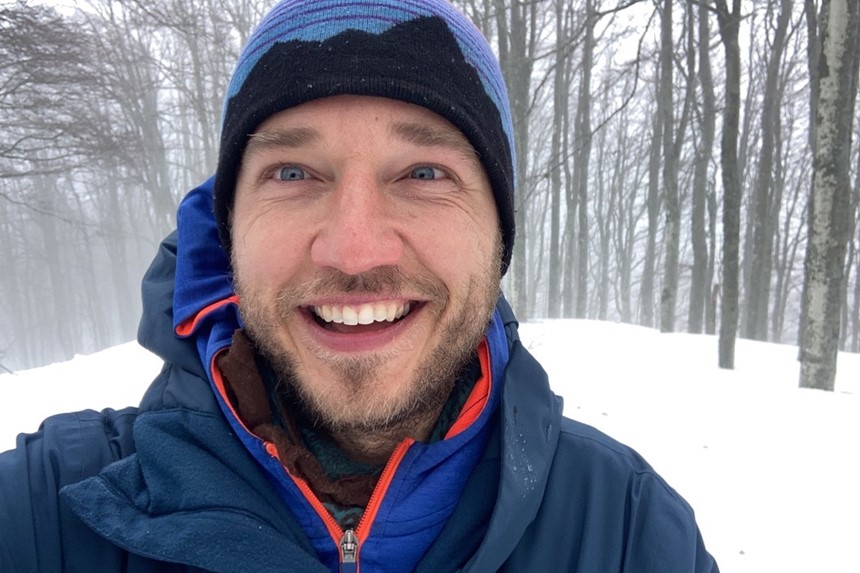
One pathway is education. The Visionaries is exploring how nature-based programmes rooted in rites of passage rituals might help respond to a high-churn, high-stress teaching environment of exam-score hegemony by creating more experiential learning moments. Covid has stalled work for now, obliterating schools’ capacity to run, let alone commission experimental programmes. But growing interest in this work from schools, and the excellent early feedback, mark a tentative but exciting step towards the ambition to have radical nature-based programmes in schools across the country.
At the more general organisational level, Adrian’s Way of Nature co-founder Andres Roberts is leveraging nature-based thinking to help “change the story of leadership by working with nature” through the Bio-Leadership Project, working as part of a network (or “human mycelium”) of people and projects trying to foster a culture of regenerative leadership rooted in interconnection with the natural world.
Though not strictly nature based, Adrian has also done a lot of work with men’s groups. “As a man, before I was introduced to men’s work, it didn’t feel like I could be really honest with anyone, including my parents, about what was going on for me internally,” he says. “That means when I was really struggling with something I would hold it back - even though, in those moments, I needed the support of community.” Many principles of his nature-based work - ceremony, checking in, a community holding space for individuals - apply here.
The question of how work of this nature might impact these groups is yet to be answered at scale. But for anybody interested in how we can intentionally harness outdoor experiences for the benefit of society, these threads are well worth following. For anybody interesting in learning more, the following links could be of interest:
